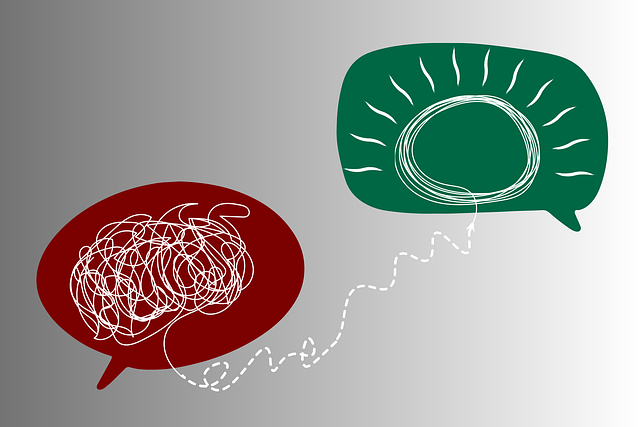Marketing a mental wellness app for elderly alcohol abuse must balance sensitivity with clarity, focusing on accessibility, privacy, and personalized support. Targeted campaigns highlighting specialized geriatric therapy and burnout prevention for healthcare providers attract users and build trust. Digital strategies leveraging social media, podcasts, and user-generated content engage audiences while offering accessible resources from home. Relatable success stories and expert insights humanize the app's impact, establishing authority and encouraging downloads for Therapy for Elders Alcohol Abuse.
Mental wellness apps offer a promising approach to address alcohol abuse among the elderly, a growing concern in today’s digital age. This article explores a comprehensive marketing strategy for such apps, focusing on an at-risk demographic. By understanding the unique needs and challenges of elderly individuals struggling with alcohol addiction, we craft a compassionate message that resonates with them. We then leverage digital platforms for maximum reach, employ effective content strategies, and build trust through success stories, ultimately guiding users towards therapy and recovery.
- Understanding the Target Audience: Elderly Individuals Struggling with Alcohol Abuse
- Creating a Compassionate and Effective Marketing Message
- Leveraging Digital Platforms for Reach and Engagement
- Building Trust and Promoting Success Stories through Content Strategy
Understanding the Target Audience: Elderly Individuals Struggling with Alcohol Abuse

Understanding the target audience is a crucial step in developing an effective marketing strategy for mental wellness apps, especially when addressing specific issues like alcohol abuse among elderly individuals. This demographic often faces unique challenges that require tailored interventions and support systems. Many older adults struggle with social isolation, physical health issues, and cognitive decline, which can contribute to increased stress, anxiety, and, in some cases, substance abuse as a coping mechanism. Recognizing these complexities is essential when creating marketing content for apps offering therapy for elder alcohol abuse.
By highlighting the benefits of digital solutions, such as accessibility, privacy, and personalized support, marketing campaigns can attract elderly users seeking help. For instance, promoting an app that provides access to therapists specializing in geriatric mental health or one that offers social skills training to combat loneliness could be appealing. Additionally, incorporating burnout prevention strategies for healthcare providers involved in the care of this population can ensure a holistic approach, addressing both the user’s needs and the support system around them.
Creating a Compassionate and Effective Marketing Message

In crafting a marketing message for a mental wellness app targeting seniors struggling with alcohol abuse and considering therapy, it’s paramount to balance sensitivity with clarity. The language used should foster a sense of compassion and understanding, acknowledging the often-stigmatized nature of addiction while presenting your app as a non-judgmental, supportive resource. Use inclusive and reassuring tone, emphasizing the app’s ability to offer personalized guidance and connect users with professional help without the potential barriers of cost or accessibility often associated with traditional therapy.
Integrate keywords like “Burnout Prevention Strategies for Healthcare Providers” and “Compassion Cultivation Practices” to subtly highlight the app’s value not just for seniors but also for caregivers and healthcare professionals looking to support elderly patients. Similarly, weave in concepts of “Emotional Intelligence” to suggest that the app empowers users with tools to manage stress, regulate emotions, and build resilience – all essential components of mental wellness. This multifaceted approach ensures your marketing resonates with a broader audience while remaining true to the core need for sensitive, effective treatment of alcohol abuse in seniors.
Leveraging Digital Platforms for Reach and Engagement

In today’s digital era, leveraging online platforms is paramount for reaching and engaging audiences seeking mental wellness solutions, particularly when addressing niche concerns like therapy for elders with alcohol abuse issues. Social media channels, content-rich websites, and targeted online ads can effectively spread awareness about available resources, including specialized therapy programs and mindfulness meditation practices. By integrating user-generated content and interactive features, these digital platforms foster a sense of community and encourage open conversations around mental health.
For instance, the development of a Mental Wellness Podcast Series Production catering to seniors’ specific needs can attract and retain an engaged audience. Similarly, designing comprehensive Mindfulness Meditation guides or hosting online Mental Health Education Programs can provide valuable insights and coping strategies directly to individuals in need. This digital approach not only amplifies reach but also ensures accessibility, enabling elders to access support from the comfort of their homes.
Building Trust and Promoting Success Stories through Content Strategy

Building trust is paramount when marketing mental wellness apps, especially for sensitive issues like alcohol abuse among elders. Content strategy plays a crucial role in this by sharing relatable stories and expert insights. Success stories from users who have benefited from therapy can humanize the app’s impact, fostering connection and credibility with potential users facing similar challenges.
Integrating these narratives alongside informative content on topics like communication strategies for family involvement or designing mental health education programs tailored to elders’ needs, can effectively engage and reassure prospects. A well-rounded content approach, including a Mental Wellness Podcast Series production, allows the app to establish itself as a reliable resource, ultimately encouraging downloads and user engagement.
In developing a marketing strategy for a mental wellness app targeting elderly individuals with alcohol abuse issues, understanding the audience’s unique needs is key. By creating a compassionate message that resonates with their struggles and leveraging digital platforms for reach and engagement, the app can gain trust and credibility. Incorporating success stories through content strategy showcases effective therapy outcomes, attracting potential users and fostering a sense of hope. When combined, these tactics ensure the app stands out as a valuable resource for elderly individuals seeking help for alcohol abuse, ultimately guiding them towards a healthier future.











